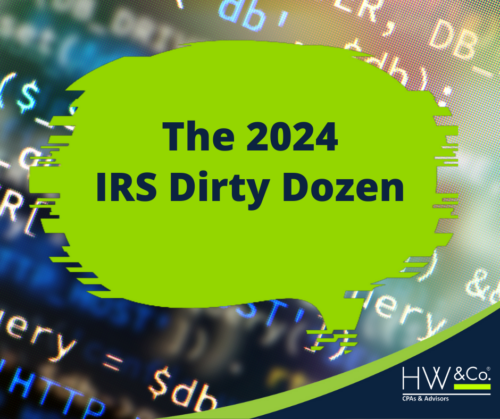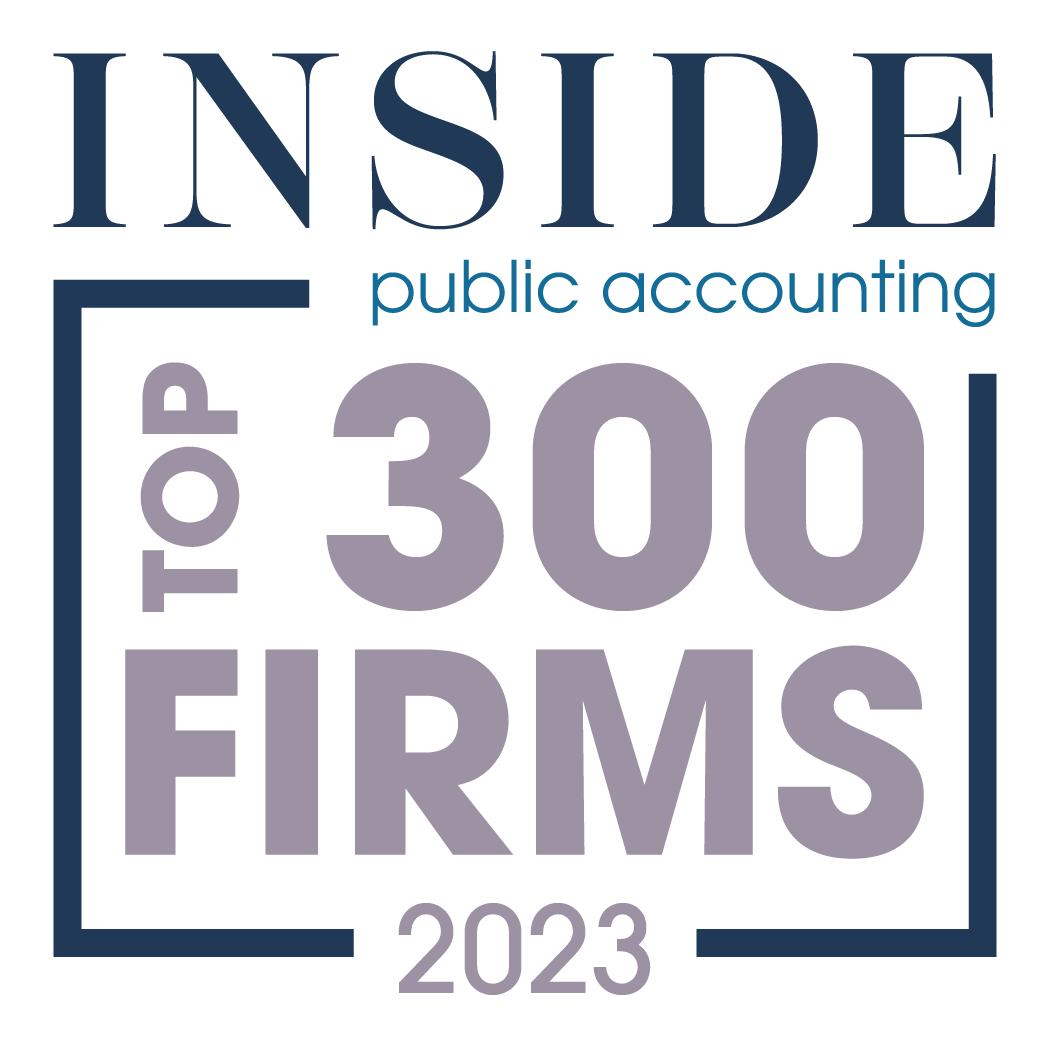 For over two decades, the IRS has issued the “Dirty Dozen,” an annual list of common tax scams and abusive tax avoidance arrangements that expose taxpayers to the risk of losing personal information, data, money, and other assets. The list helps protect taxpayers by promoting awareness of the schemes perpetrated by fraudsters and con artists.
For over two decades, the IRS has issued the “Dirty Dozen,” an annual list of common tax scams and abusive tax avoidance arrangements that expose taxpayers to the risk of losing personal information, data, money, and other assets. The list helps protect taxpayers by promoting awareness of the schemes perpetrated by fraudsters and con artists.
Over the coming weeks, HW&Co. will showcase the scams you should be aware of to avoid becoming a victim. Read about these scams and share them with your friends and family. Here are the first two items from the 2024 list:
1. Phish and Smish Scams:
The IRS is urging taxpayers to be cautious of email and text scams, sometimes referred to as “phishing” and “smishing.” These take the form of fake communications disguised to appear as if they’re from legitimate organizations, including the government agencies like the IRS.
- Phishing happens when a scammer sends an email that appears to be sent from a legitimate source, but it lures taxpayers into providing sensitive personal information or manipulates them into participating in certain schemes, such as receiving a phony tax refund, or convincing them that they have committed tax fraud.
- Smishing occurs via text or SMS message and uses a similar ploy, attempting to convince unwitting taxpayers that they need to click a link or take some other action to resolve a fictional issue. For example, victims might receive a text notifying them that their account is on hold until they click a link (which looks genuine but is actually unsafe) to restore their account.
It’s important to note that the IRS most often communicates via regular mail, and it will never contact taxpayers by email, text, or social media with regards to a bill or tax refund.
Phishing and smishing often escalate during tax season and the IRS urges vigilance, but they can occur throughout the year. A common example is the “new client” scam that can target CPAs and other tax professionals.
Individuals should never respond to tax-related phishing or smishing or click on the URL link. Instead, report all unsolicited email – including the full email headers – claiming to be from the IRS or an IRS-related function to phishing@irs.gov.
2. ERC Scams
The Employee Retention Credit (ERC) is a refundable tax credit given to businesses that paid employees even when they were shuttered due to the COVID-19 pandemic. It can also be claimed by businesses that had a significant loss in gross receipts during certain periods. However, schemers are using promotions to trick ineligible taxpayers into claiming the credits, jeopardizing their financial and personal data. Businesses and individuals also incur the risk penalties, interest and potentially even criminal prosecution if they erroneously claim the ERC.
The IRS has repeatedly cautioned against trusting promoters who have been advertising (often via the radio or internet) assistance with obtaining refunds involving ERCs. These schemes often include inaccurate information related to eligibility and credit calculations, and unscrupulous marketers may push ineligible businesses to submit an incorrect ERC claim. Businesses should thoroughly review the complex ERC guidelines and contact a trusted tax professional before submitting a claim to avoid potential IRS compliance issues.
The IRS also allows businesses to withdrawal any unprocessed claims via their claim withdrawal process if they haven’t yet been paid.
If you experience any monetary losses due to an IRS-related scam incident, report it to the Treasury Inspector General for Tax Administration (TIGTA), the Federal Trade Commission and the Internet Crime Complaint Center (IC3).
The full IRS news releases offer additional information and warnings:
- IR-2024-84 IRS Kicks Off Annual Dirty Dozen with Warning about Phishing and Smishing Scams
- IR-2024-85 Dirty Dozen: Beware of Aggressive Promoters Who Dupe Taxpayers Into Making Questionable Employee Retention Credit Claims; Risks Continue for Small Businesses, Special Withdrawal Program Remains Available
Stay tuned over the coming weeks as we continue to profile the remaining entries to keep you apprised of how to avoid evolving tax schemes.
For more information, please visit the IRS website or contact an HW&Co. Advisor today.
©2024






